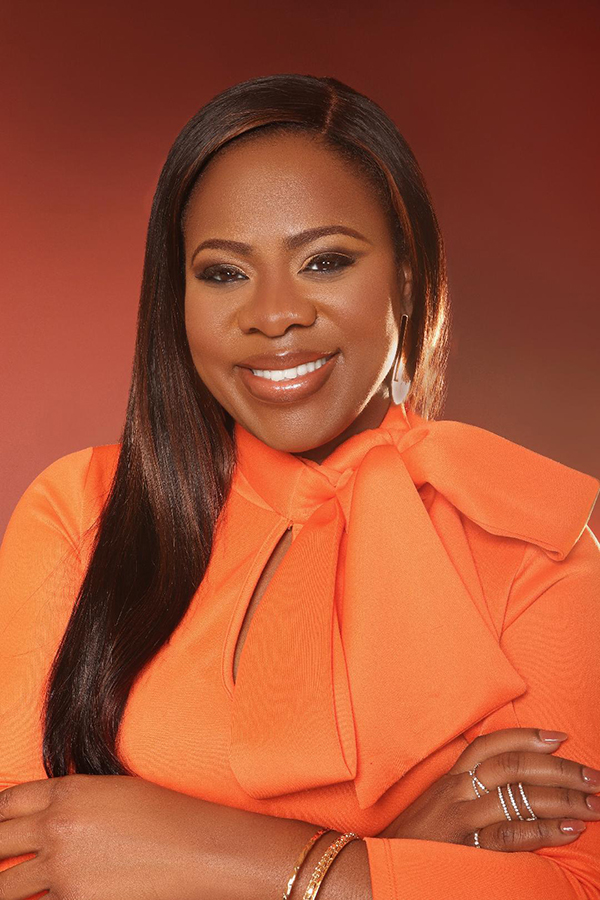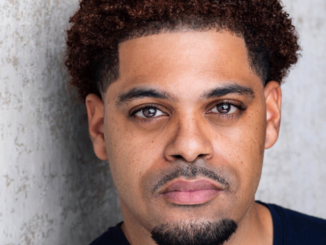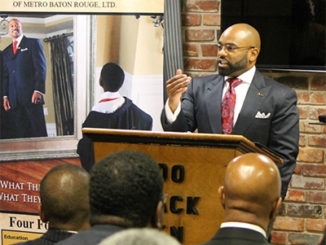
By Taroue Brooks
Tell us again about your education/training.
As the first female ordination candidate in a rural Missionary Baptist Church, my father insisted that I read every commentary and theological resource I could get my hands on. He thought I would give up and decide to become a doctor, but I kept on insisting that I was called to preach. I was licensed to preach at age fifteen and ordained at age twenty-five. I received a college preparatory, International Baccalaureate diploma from Central High School, A Bachelor of Arts degree from Mercer University, both are in Macon, GA. I went on to earn a Master of Divinity Degree from the Candler School of Theology at Emory University in Atlanta and I am currently pursuing a Ph.D. in African American Preaching and Sacred Rhetoric at Christian Theological Seminary in Indianapolis, IN.
Tell us what you feel it means to Pastor People in a Pandemic
Pastoring in a pandemic has proved to be hard work, but it is also very rewarding. Growing up with my Dad, who pastored in rural middle Georgia, I learned that people don’t care how much you know. They want to know how much you care. The experience of pastoring in a pandemic while practicing social distancing, has taught me how to be present with people through social media, email, phone calls, and videos in a more profound and pervasive way. The eloquence and elegance of our message is not the main objective right now. Let me clarify that I believe in being responsible in preaching and exegeting the Biblical text, but I also believe that the warmth of our hearts and how our people feel supported in this season is key. This practice of showing compassion and care applies to both churches and secular organization. In my context, I have spoken with several members who could not attend funerals for loved ones due to ten-person restrictions for funerals. This has been painful for them. Families affected by Covid 19 are also reporting the experience of being on FaceTime, a video calling application on most apple devices, in their loved ones’ last moments of life. They recount with the trauma and pain they have felt in not being able to be with their loved ones physically in their last moments. Unfortunately, with all my training in pastoral care and ministry, my words are inadequate. In these moments, I sit with our members and my friends, and I cry, and I listen. If there were a way to use words which characterize my executive pastorate in this season, it is practicing the art of feeling with people and listening to people. The words of Hebrews 4:15 come to mind, For we have not an high priest which cannot be touched with the feeling of our infirmities; but was in all points tempted like as we are, yet without sin. People want to know that the church cares, that their pastors care, and that their communities care.

What advice would you give other pastors who are leading their congregations through Covid 19 aide and online church culture?
Make sure your membership systems are up to date. Many churches use data systems like ChurchTeams, Fellowship One, Shelby, and ACS to collect and manage their membership data. These are the systems we use to contact members in times of crisis and to share critical updates and vital information. If your membership data is up to date, you can communicate effectively with your congregations without physical presence. Over the past few weeks, our staff has implemented a multiple touch model wherein members are touched via email, phone call, social media, and our own schedule of programming on Hope TV, to give our membership a break from the discouraging and often dark news we receive on many news and public broadcast mediums.
How do you replenish your energy after having given so much of yourself? How have your Go-To’s for stress relief changed due to social distancing?
Yes! Last time we spoke, my hobbies outside of church included thrifting and shopping. I do get to do that at all anymore. Now, I read, meditate, pray, and ride my bike in my neighborhood. On my rides, I wear my mask and pray for our nation and our world.
Where do you vision your career in ministry in the next five years?
That hasn’t changed. I still believe that we are not in competition with each other, but we are competing with the best versions of ourselves. In addition to my calling to be powerful preacher, loving leader, public theologian, modern-day philosopher, and hope dealer, I want to be the healthiest version of myself. In this season, my aim it be a good friend, a good listener, a good sister, and a good aunt and daughter. That’s how we create legacy. In terms of my career, I’d like to continue pastoring and add a tenured professorship in Homiletics to my dossier.
Is there anything you’d like to leave with us?
I have lots of online speaking opportunities and consultations coming up. Please pray that my creative energies continue to flow, and that God consistently speaks to me in my devotional time. I meant to say this earlier. For Pastors, Bosses, and Leaders, your devotional/meditational time is a non-negotiable. The pandemic is stressful, and work is stressful. Adulting can be stressful. Moments to talk through it all and quiet our minds happen to be one of our greatest weapons against depression, poor mental health, and an overall lack of motivation and clarity. Meditation and devotion are the primary means by which we get our daily download and refills for what we will face throughout the day.

What should we look out for from you in the future?
As I shared before, I’m sure another book is on the horizon in addition to my academic work at Christian Theological Seminary. I am convinced that this season of staying in and quiet time can still be a winning season. You can grow a secular organization in pandemic and that is exactly what I plan to do. This is a winning season and I’m excited about the next chapter because I know the Author personally.
Social Media
Instagram- @thecarnerjlc
Twitter- @thecarnerjlc
Website- www.jennifercarner.com








Be the first to comment